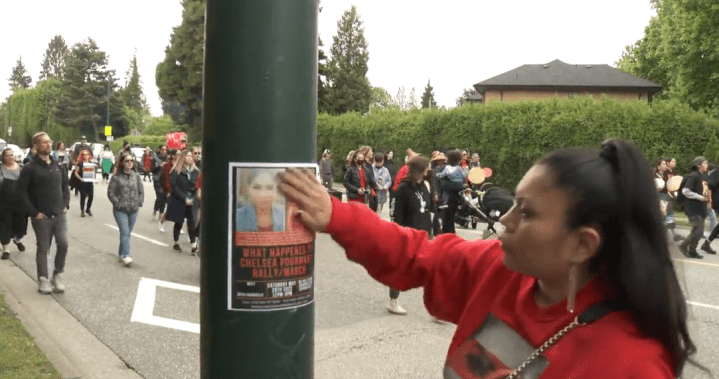Families and advocacy groups have formally requested a coroner’s inquest into the deaths of three young Indigenous females in British Columbia—Tatyanna Harrison, Chelsea Poorman, and Noelle O’Soup—highlighting concerns over potential systemic failures in justice and investigation processes. This appeal was made public on May 5, 2025, coinciding with Red Dress Day, a day dedicated to honoring missing and murdered Indigenous women and girls. The call follows disputed findings regarding the circumstances of their deaths and aims to prompt a thorough and unbiased examination of each case.
The families of Tatyanna Harrison, Chelsea Poorman, and Noelle O’Soup, along with several Indigenous advocacy organizations, have raised serious concerns regarding the circumstances surrounding the deaths of the three girls. They argue that the initial investigations lacked transparency and failed to address possible systemic biases that may have influenced the outcomes. The formal request for a coroner’s inquest seeks to ensure independent scrutiny and foster accountability within the justice system.
Background on the Cases
Tatyanna Harrison, Chelsea Poorman, and Noelle O’Soup were all young Indigenous females whose lives were tragically cut short in British Columbia. The cases have received significant public attention due to the young age of the victims and suspicions around the thoroughness of prior investigations. Families have expressed dissatisfaction with the conclusions drawn by authorities, emphasizing discrepancies and unresolved questions about the circumstances that led to each girl’s death.
Significance of the Coroner’s Inquest
A coroner’s inquest is a public judicial inquiry designed to establish the facts relating to unexplained or suspicious deaths. It provides an opportunity for families, community members, and experts to participate in the investigative process. By requesting this inquest, families and advocacy groups aim to:
- Obtain a clear and independent determination of the causes and circumstances surrounding the deaths.
- Identify any systemic issues or lapses within law enforcement or investigative bodies.
- Ensure that lessons are learned to prevent similar tragedies in the future.
- Promote transparency and restore community trust in the justice system.
Community and Advocacy Group Responses
Indigenous organizations have highlighted the broader context of violence and neglect experienced by Indigenous women and girls in Canada. Red Dress Day, observed on May 5, serves as a poignant reminder of these ongoing issues. The timing of the appeal reinforces the symbolic and urgent nature of the demand for justice and reform. Advocacy groups stress that an inquest is a critical step towards addressing systemic failures that disproportionately affect Indigenous communities.
Next Steps and Official Responses
As of the date of this appeal, provincial authorities have not formally committed to launching the requested inquest. The families and their representatives continue to urge the British Columbia government and the coroner’s office to act promptly. Officials have acknowledged receipt of the request but have yet to provide a timeline for a decision. Ongoing dialogue between stakeholders aims to ensure that the issues raised are comprehensively addressed.
Conclusion
The call for a coroner’s inquest into the deaths of Tatyanna Harrison, Chelsea Poorman, and Noelle O’Soup underscores persistent concerns about the treatment of Indigenous victims within Canadian justice processes. It reflects a broader movement advocating for accountability, transparency, and systemic change in how such cases are handled. The outcome of this request may set a precedent for future investigations involving Indigenous persons and contribute to national efforts to combat violence against Indigenous women and girls.
The request for a coroner’s inquest into the deaths of Tatyanna Harrison, Chelsea Poorman, and Noelle O’Soup highlights ongoing challenges in addressing the safety and justice concerns of Indigenous communities in British Columbia. By seeking an independent and transparent examination, families and advocacy groups emphasize the need for accountability and reform within investigative and judicial frameworks. The process, if undertaken, holds the potential to clarify unanswered questions, uncover systemic weaknesses, and guide steps toward preventing future tragedies. This effort aligns with broader national initiatives aimed at recognizing and remedying the disproportionate impact of violence on Indigenous women and girls, reinforcing the critical importance of trust, fairness, and responsiveness in the justice system.

